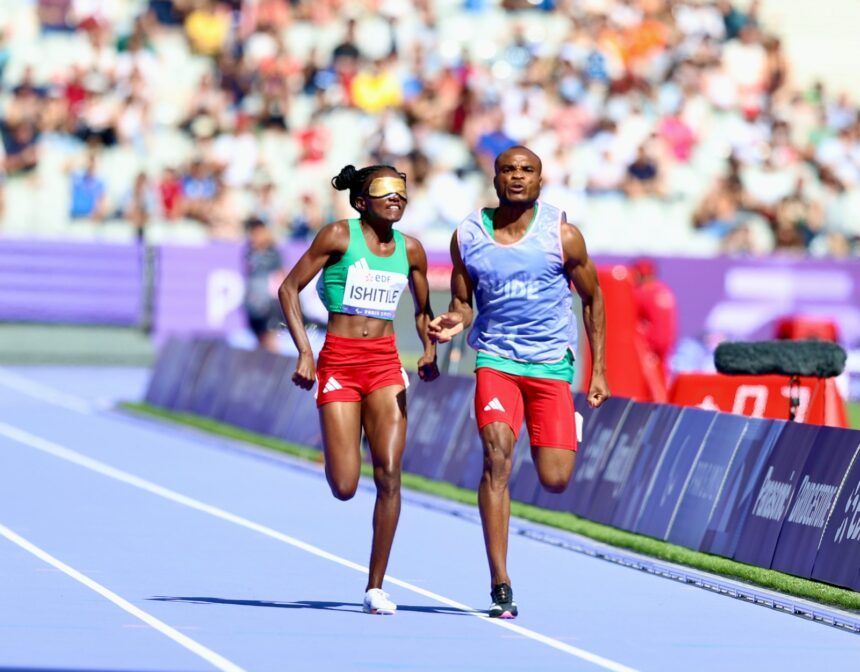Returning home with two medals from the Paralympic Games in France, Lahja Ishitile feels left out and unappreciated for her heroic exploits that left many Namibians with smiles on their faces.
Despite breaking the Paralympic record in the 400 metre (m) T11 race by a remarkable 42.60 seconds, and clocking 25.04 seconds in the 200m T11, her triumph appears to have been overshadowed by a sense of neglect. She expressed feeling abandoned by both the Namibian government and private companies, her achievements met with silence instead of celebration.
“I didn’t even want to compete at these games,” Ishitile admits, revealing that it was her coach’s push that led her to participate. Initially, she had her sights set on the 2028 Games.
Despite the medals, her return home has been bittersweet. “I don’t feel appreciated,” she said, her voice tinged with disappointment. “No one is thinking about me. It’s like everything faded the moment I came back.”
Ishitile’s frustration is not just about the accolades, but about the lack of basic support that continues to plague her day-to-day life.
“I live in the hostel. I travel to and from training, and it costs me a lot. Sometimes I don’t even have taxi money, and my coach or guide must come and get me,” she said.
Her reality is stark: “I can’t force people to sponsor me; it’s really up to them. But it’s hard when even after winning medals, nothing changes.”
The emotional weight of her situation runs deep, so much that she’s contemplating a drastic change. “Maybe it would be better to run under a Refugee Team at the 2028 Los Angeles Games rather than representing Namibia,” Ishitile admits, a startling reflection of her growing disillusionment. “I am really thinking about that, and after that, I might retire and focus on other things.”
These “other things” include her dream of stepping into the media world – a passion she has long harboured. “I have always wanted to act, and produce a documentary about my life. I even studied journalism for a year, but the institution which I was at, didn’t have the resources for me to continue,” she said. Now, she’s pursuing a degree in Library Science at the University of Namibia, but her dream of studying acting abroad still burns bright. “Maybe one day, I’ll study acting in Finland or America, where there’s more inclusive education.” Through all her challenges, there is one constant in Ishitile’s life: her guide, Sem Shimanda. “He’s like my big brother,” she said with a smile. “He encourages me to be the best, and I want the best for him too. We are more than just a team; we’re family. We talk every day – our Paralympic team is so close. Ananias Shikongo and Johannes Nambala phone almost every day to check up on me,” she said.
In a message to the next generation of Paralympians, Ishitile offers words of hope. “Things can change. Don’t give up. We struggle a lot, but the future will be bright. If you have a dream, don’t let anyone dim it.” Her words extend to parents of children with disabilities. “Disability is not inability. Get your children involved in sports or activities they love. Don’t hide them away at home. Follow competitions Paralympians participate in,” she said.
Photo: Nampa



